In the interest of not just presenting a list of the greatest Akira Kurosawa movies, we are limiting Kurosawa while talking about the best Samurai movies ever made. There are samurai movies on par with Kurosawa’s finest, yet there is also the temptation to simply pay tribute to the man over and over again. Many of the top samurai movies in history were directed (and sometimes co-written) by just one man. His influence deserves its own article.
In discussing something like the greatest samurai movies of all time, it is more reasonable to move through history. Samurai stories predate cinema by a substantial period of time. It was inevitable that such stories would find their way into film, even in the early days of Japanese silent cinema. It has been an enduring genre for as long as people have been making movies. There are even samurai stories that are set outside of Japan, as well as stories that put a non-Asian actor in a key role.
Regardless of how you feel about those, you can’t deny that samurai movies are popular in countries beyond Japan. There is a universal appeal to the potential complexities of someone who makes their living in such a strange, sometimes contradictory way. Samurai movies can have profound messages of peace, even when surrounded by incredible, sometimes over-the-top violence.
Samurai have often been depicted as loners, or as individuals trying to rise against mounting waves of corruption. Certainly, they have also been depicted as scoundrels, murderers, rapists, and other lowlifes. There are stories of Ronin samurai, who operated without a lord or master. There are stories of samurai banding together against a common enemy.
Much like the gangster story, which needs certain specifics to qualify as its type, there is far more versatility in this genre than many realize. Rather than focus the celebration on the works of Akira Kurosawa, many of which featured samurais, it would be more interesting to show just how enduring and far-reaching the best samurai movies can be.
The Best Samurai Movies
1. Seven Samurai (1954)
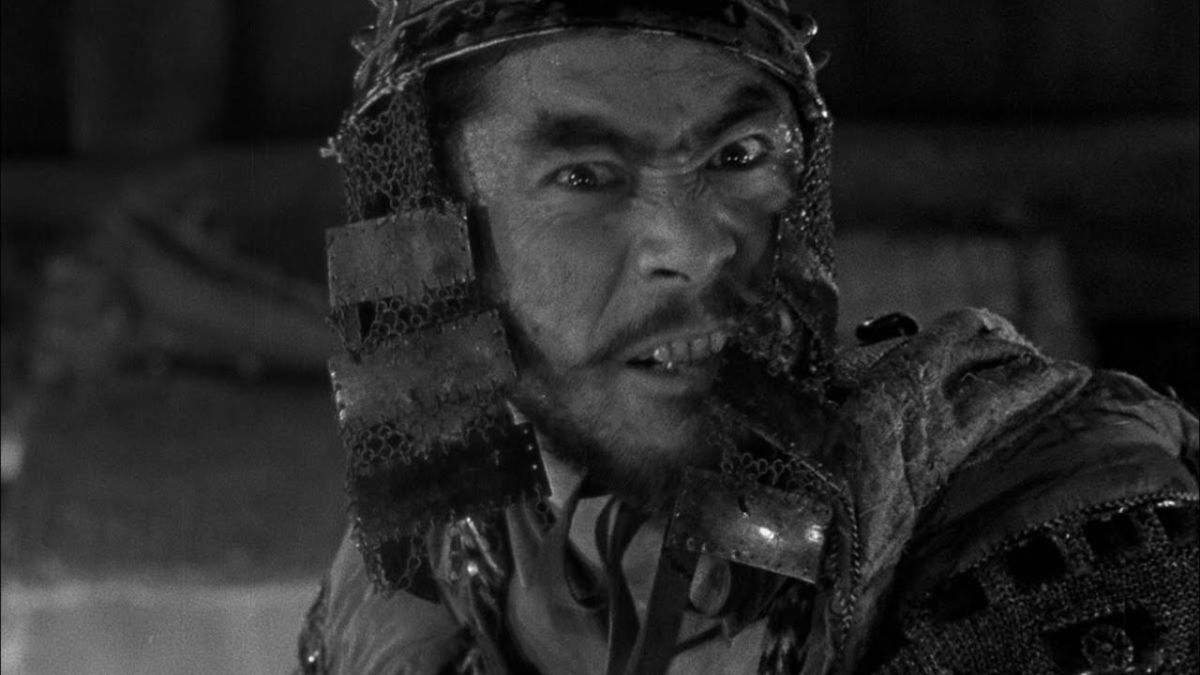
Director: Akira Kurosawa
While certainly not the first samurai story committed to film, Akira Kurosawa’s Seven Samurai nonetheless set a standard, pretty much from the moment it was released. Kurosawa had famously extended production costs, along with the timeline Toho Studios had wanted him to adhere to. It worked out, as the film would go on to be the third highest-grossing release in Japan for that year.
While firmly entrenching Toshiro Mifune as a star in his role as Kikuchiyo, Seven Samurai is also just a spectacular, winning epic across 207 powerful minutes. The story of the downtrodden turning to unlikely heroes is a formula that seems to have universal appeal. Specifically, with Seven Samurai, its grandiose, human approach to the material has inspired dozens of other films, remakes, and more.
You don’t need to think about that to appreciate numerous incredible performances (including the great Takashi Shimura), a riveting story, and the palpable energy the film generates.
Watch if: You want to see what might just be the best samurai movie of all time.
Avoid if: You prefer fight scenes that are more stylized.
2. Samurai Trilogy (1954-1956)
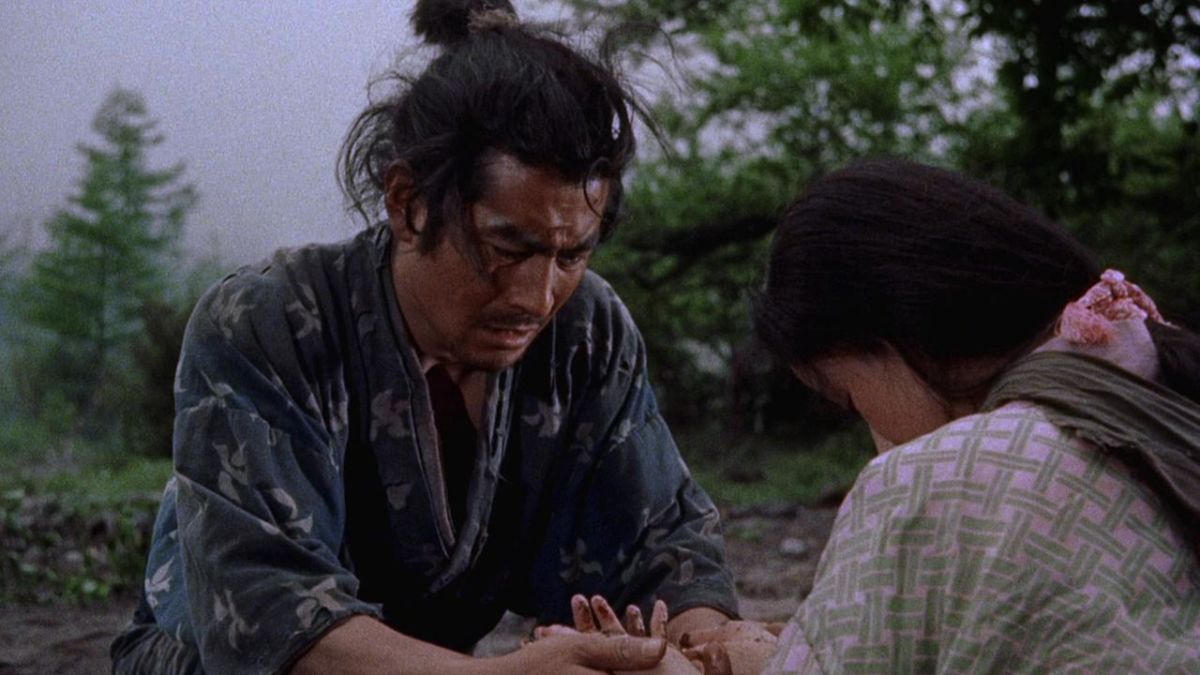
Director: Hiroshi Inagaki
Is it cheating to allow for the inclusion of a trilogy on this best samurai movies list? I suppose so, since it’s fairly difficult to watch just one of these.
That means setting aside 300+ minutes for director Hiroshi Inagaki’s masterpiece depiction of the legendary samurai Musashi Miyamoto. I will grant you that’s a lot of time. At the same time, from the unforgettable performance by Toshiro Mifune, to the film’s riveting duel scenes, there is so much to this series that is worth your time.
It is indeed three films, but it is meant to be appreciated as one compulsory, almost overwhelming experience. The visual poetry of this film has been another big inspiration for the many things to come out after it.
Watch if: You want to see one of the best in the long career of Toshiro Mifune, one of the finest actors of his time.
Avoid if: You really just don’t have 303 minutes to spare. You can watch them one at a time, but I wouldn’t recommend letting too much time pass between parts.
3. Throne of Blood (1957)
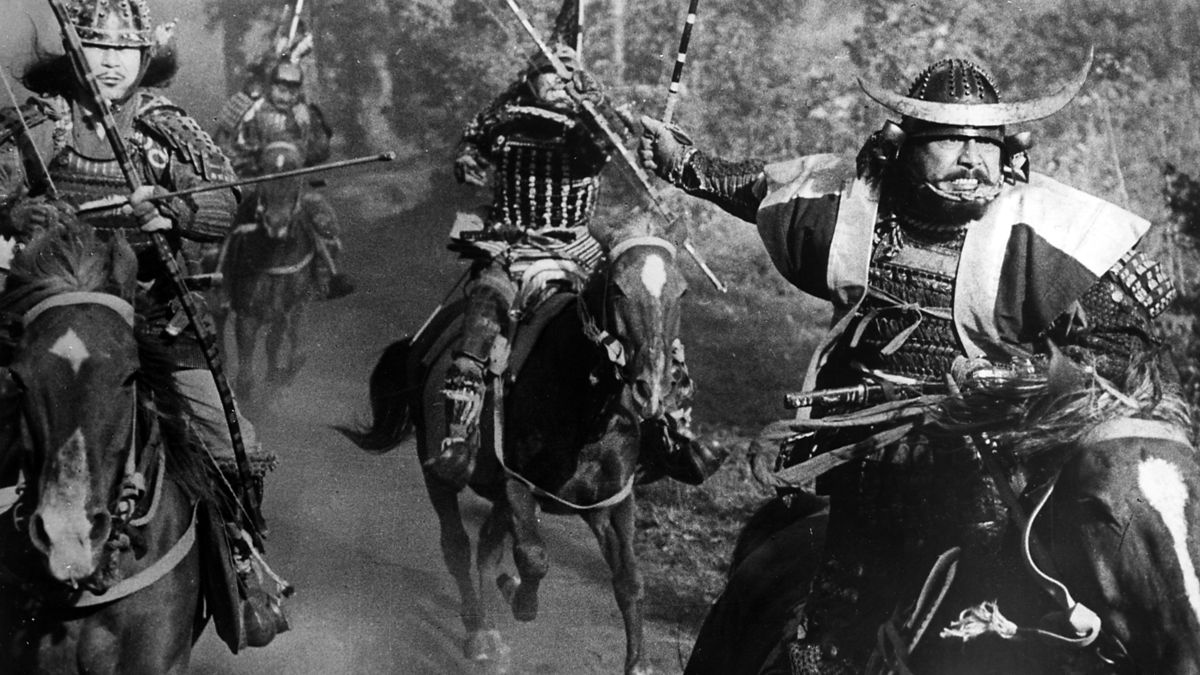
Director: Akira Kurosawa
Throne of Blood is quite possibly the finest marriage of Shakespeare with feudal Japan. It is yet another extraordinary collaboration between Toshiro Mifune, playing essentially Macbeth, and Akira Kurosawa, who was no stranger to using outside influences to tell decidedly Japanese stories.
Throne of Blood is perhaps best appreciated in the present for two things. The first would be the performances, particularly Mifune in one of his most complex, compelling roles. The second involves a stunning scene that brings together Mifune with what seems like a few hundred thousand arrows.
Just keep in mind that while that scene is unforgettable, everything else leading up to that moment is why that scene is unforgettable in the first place.
Watch if: You can’t get enough of those samurai Shakespeare dramas.
Avoid if: You prefer more straightforward Shakespearean adaptations. God knows why, but you do.
4. Yojimbo (1961)
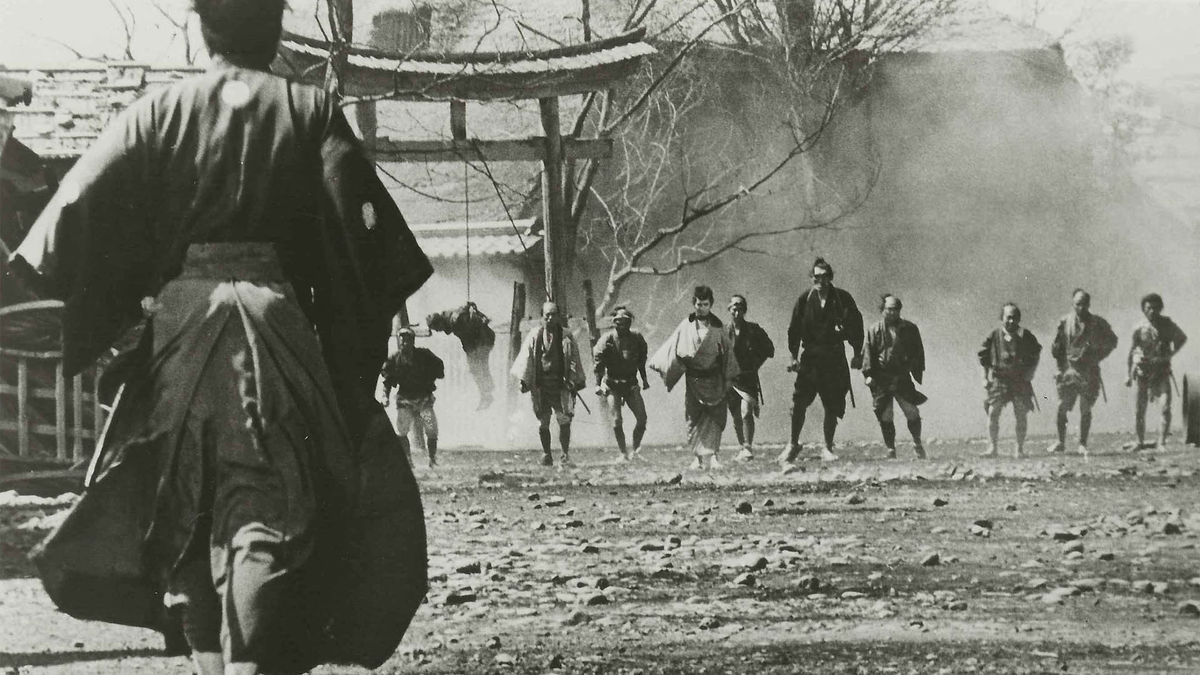
Director: Akira Kurosawa
The truth of the matter is that there isn’t a bad Kurosawa/Mifune collaboration in the bunch. It is even more impressive when you consider the variety in the stories they told together. Yojimbo is considerably more lighthearted than anything else they ever did. It is still packed with suspense, as well as some of the most enjoyable fight scenes in Kurosawa’s filmography.
Between Kurosawa and Toshiro Mifune, it can be easy to lose sight of the many other contributions to these examples of cinema at its very best. Masaru Sato’s score for Yojimbo is just as important as Mifune’s iconic, deceptively-laidback walk and attitude.
Don’t forget either that two other writers contributed to this film’s screenplay, or that Tatsuya Nakadai (still alive and working, as of this writing) as Unosuke is a flawless primary antagonist for Mifune’s groundbreaking antihero.
Watch if: You want to see a dark horse hero who is about as cool as it gets at the movies.
Avoid if: You’d rather see this as a spaghetti western.
5. Harakiri (1962)
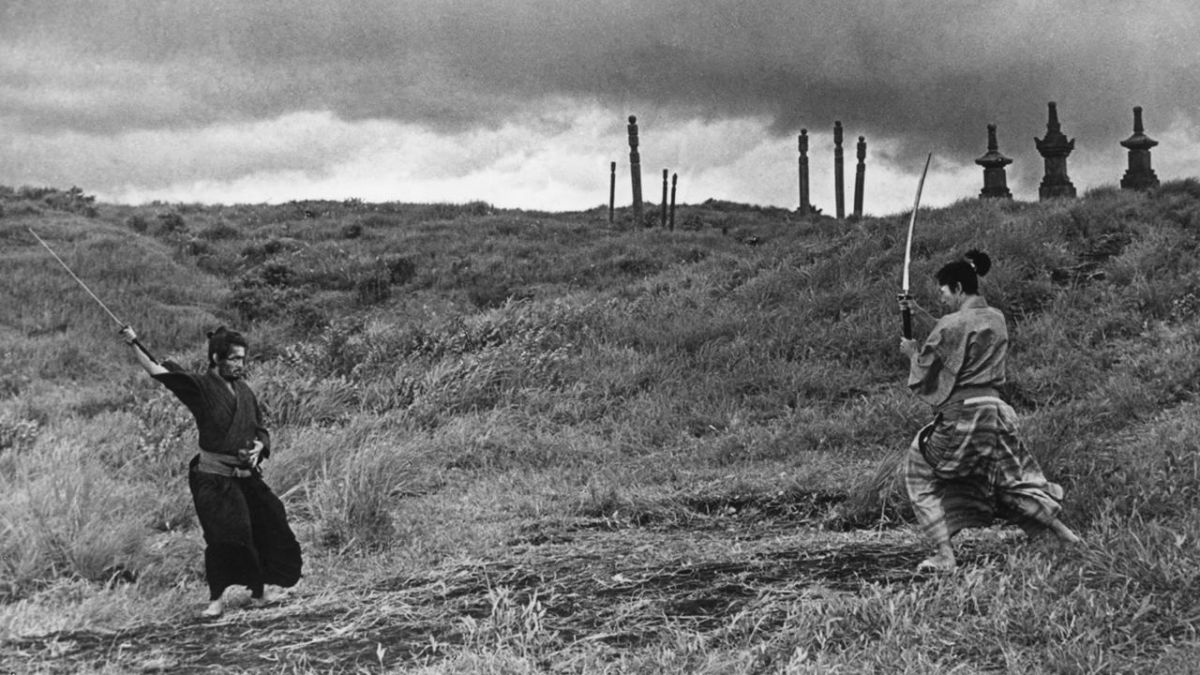
Director: Masaki Kobayashi
A deeply effecting mediation on hypocrisy, the madness of a code, and similar subjects, Harakiri is one of the most emotionally devastating entries on this list. While this high drama by director Masaki Kobayashi has some memorable fight scenes, particularly close to the end, this is more of a human story than anything else.
That is a consistency among most of the best samurai films. It is fascinating to see the various types of character studies that have emerged through the decades. Supported by one of the best samurai movie casts ever assembled, Harakiri maintains a strong current of something we can’t help but relate to. Tatsuya Nakadai as Tsugumo Hanshirō is a key part of that.
Watch if: You want to see one of the most compelling dramas in samurai film history.
Avoid if: Your preference runs to happy endings. In which case, you might be in the wrong genre.
6. Sanjuro (1962)
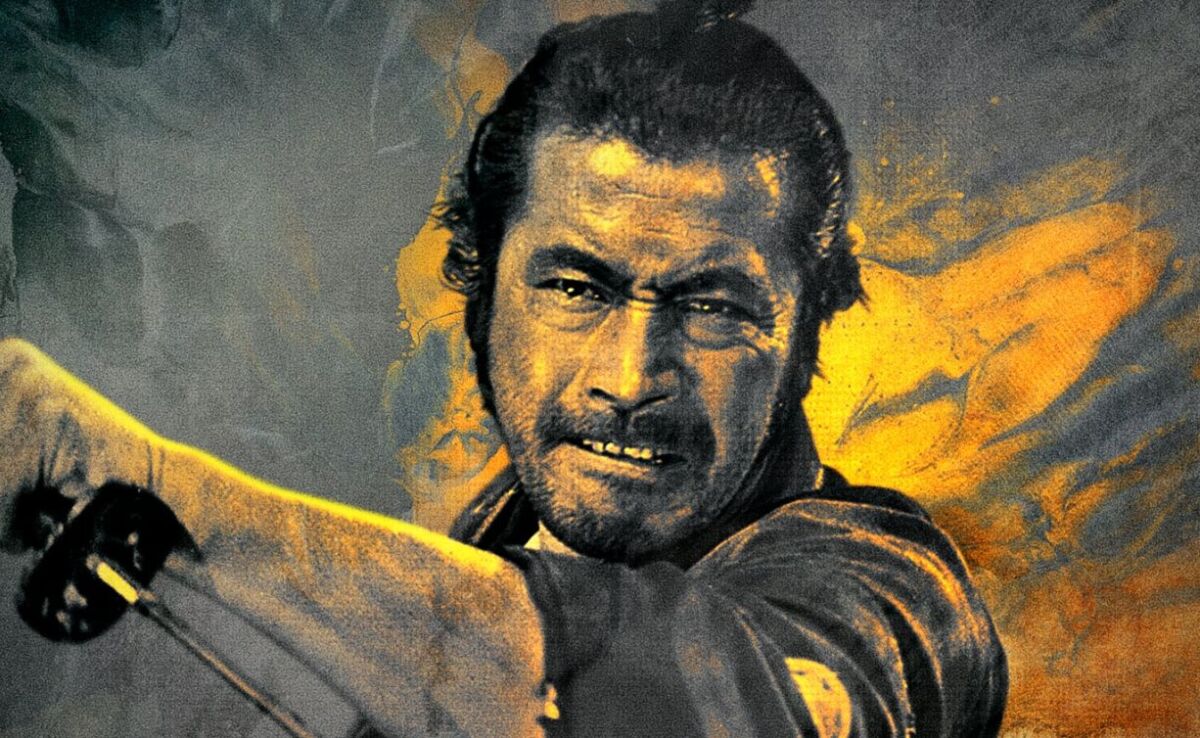
Director: Akira Kurosawa
Just one year after the success of Yojimbo, Toshiro Mifune and Akira Kurosawa teamed up again to take the character into a darker territory. The result is Mifune playing the character with a little less aloofness, in a story in which Sanjuro assists a group of young men who are trying to obliterate corruption from their clan.
Make no mistake: This is still fairly lighthearted. Particularly in the context of Kurosawa’s filmography. Still, there is something sadder beneath the brazen, unforgettable swagger of Mifune’s wandering, cynical samurai.
This time, as humorous and engaging as the movie can be, the cynicism is a little more noticeable. It would have been interesting to see the character under Mifune and Kurosawa’s direction a third and final time, but it was not to be.
Watch if: You want to see one of the best sequels of all time.
Avoid if: You weren’t a fan of Yojimbo.
7. The Tale of Zatoichi (1962)
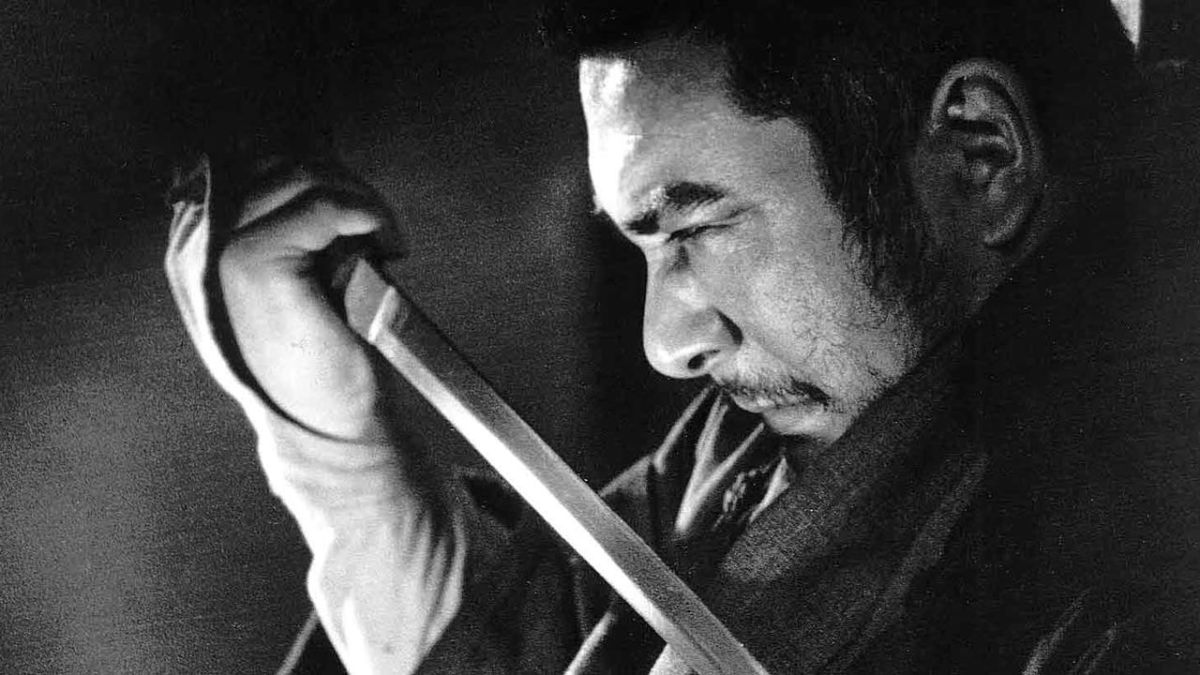
Director: Kenji Misumi
The first in a long series of successful films from Dalei Studios, The Tale of Zatoichi accomplishes two things. It is a wonderful introduction to Zatoichi, played here (and for the course of this film series) by the immensely talented Shintaro Katsu.
It is easy to fall in love with Zatoichi’s loner ideals, and with the fact that he nonetheless wears his heart on his sleeve, despite claims that he prefers a simple life. Katsu created an appealing hero for a series of films that were consistently filled with adventure, and had the flexibility to occasionally dive into darker realms of storytelling. This first film is wildly entertaining, and some of that comes from the film’s deft blend of low-key humor and the fallacies shared among most human beings.
There’s also a very good 2003 version of the Zatoichi character, written, directed by, and starring the iconic Beat Takeshi.
Watch if: You want to see a legendary samurai hero in a movie that’s still fun after 50+ years.
Avoid if: You want your samurai movies to be as stern and grim as possible.
8. Chūshingura (47 Samurai) (1962)
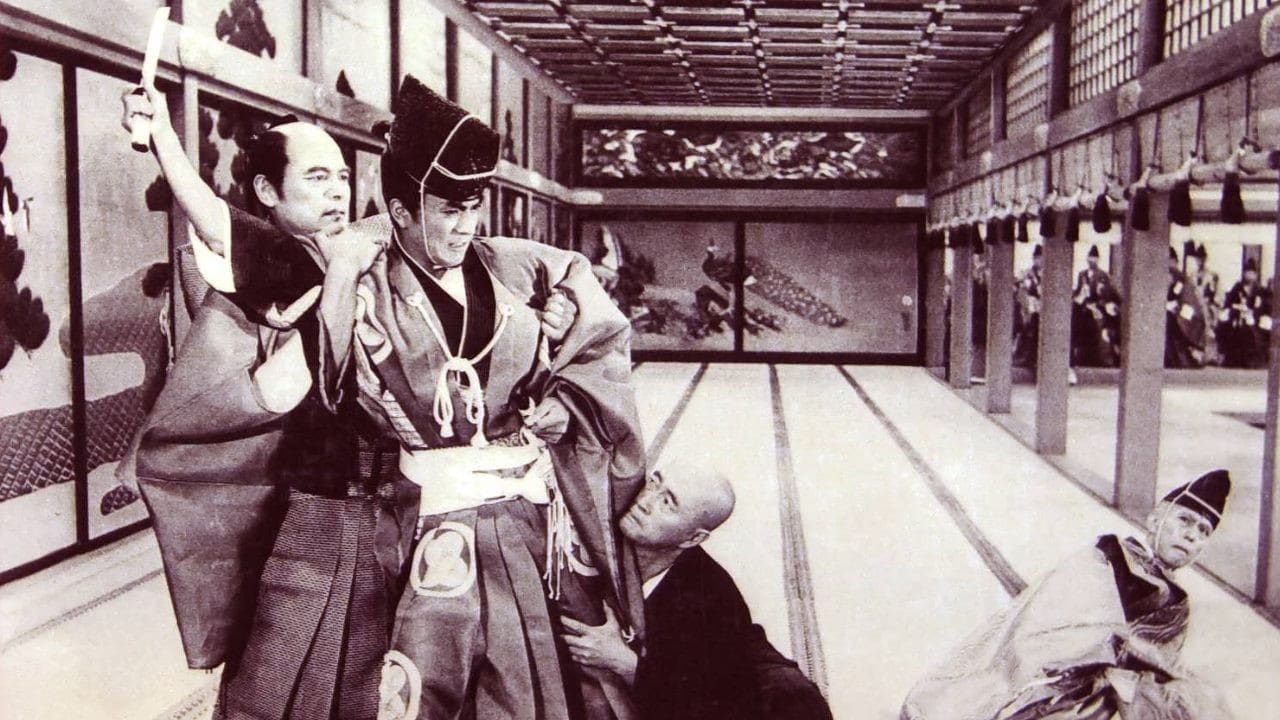
Director: Hiroshi Inagaki
Of the many cinematic versions of the famous 47 Ronin story, the Hiroshi Inagaki-directed Chūshingura is perhaps my favorite.
Running 207 minutes, this is another entry on the list that will demand a lot of your time. Samurai narratives lend themselves well to epic film storytelling. Chūshingura is a clear example of that. It is also a visionary example of combining brutal, brilliant action pieces with deep depictions of the human spirit in all its complexities.
Chūshingura also boasts one of the best casts ever put together for a Japanese film, period. Among the long list of notable names and memorable performances, pay special attention to Yūzō Kayama and Akira Takarada. This film is an overwhelming experience in the best way possible.
Watch if: You want to see one of the finest film versions of the 47 Ronin tale.
Avoid if: Again, this might be a challenging choice, if your movie picks rarely run longer than 100 minutes.
9. Three Outlaw Samurai (1964)
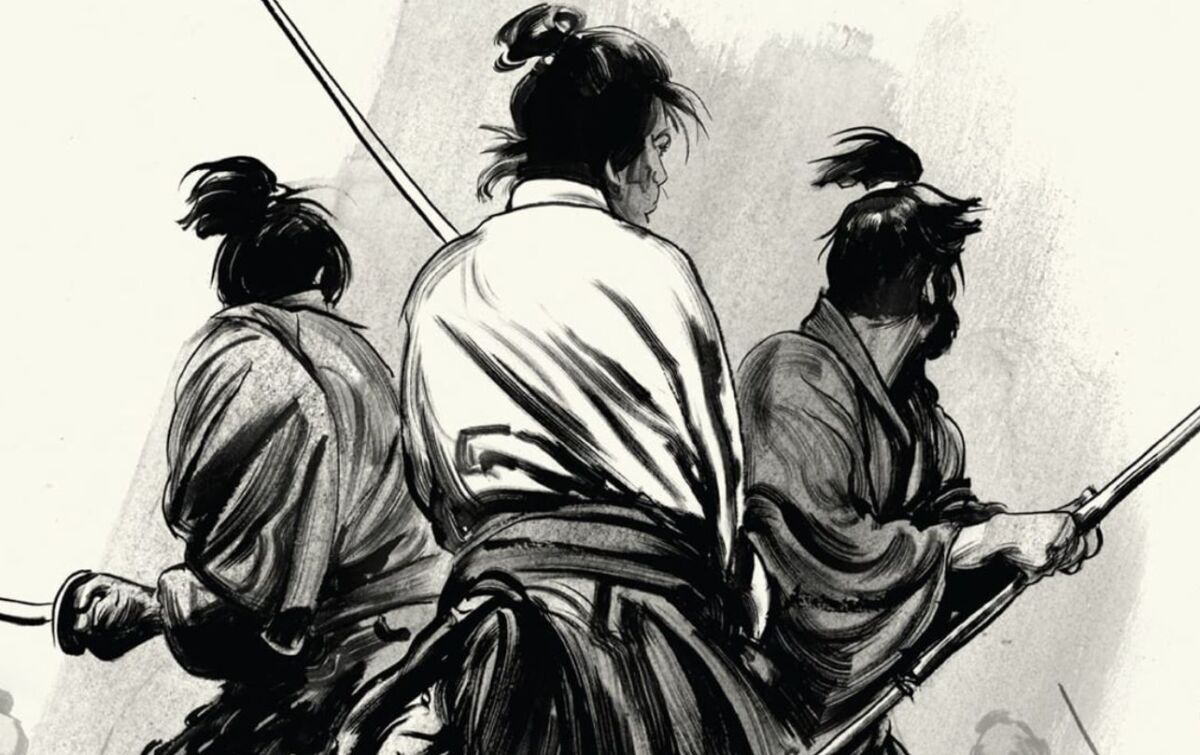
Director: Hideo Gosha
A prequel film for a popular TV series, Hideo Gosha made a ferocious feature film debut that has since come to be regarded as one of the most enjoyable and accessible samurai movies of all time. Three Outlaw Samurai benefits from great characters, particularly the three titular outlaws.
At the same time, the movie also keeps the action moving with one of the most exhilarating chanbara (sword-fighting) movies ever made. This is a good introduction to that genre within the larger one we’re talking about here.
Three Outlaw Samurai is also a striking example of samurai movies which deal with the way these individuals struggled to maintain their identities and titles in a world of utter chaos.
Watch if: You’re in the mood for some straightforward action.
Avoid if: You prefer samurai movies that delve into human interest stories.
10. The Sword of Doom (1966)
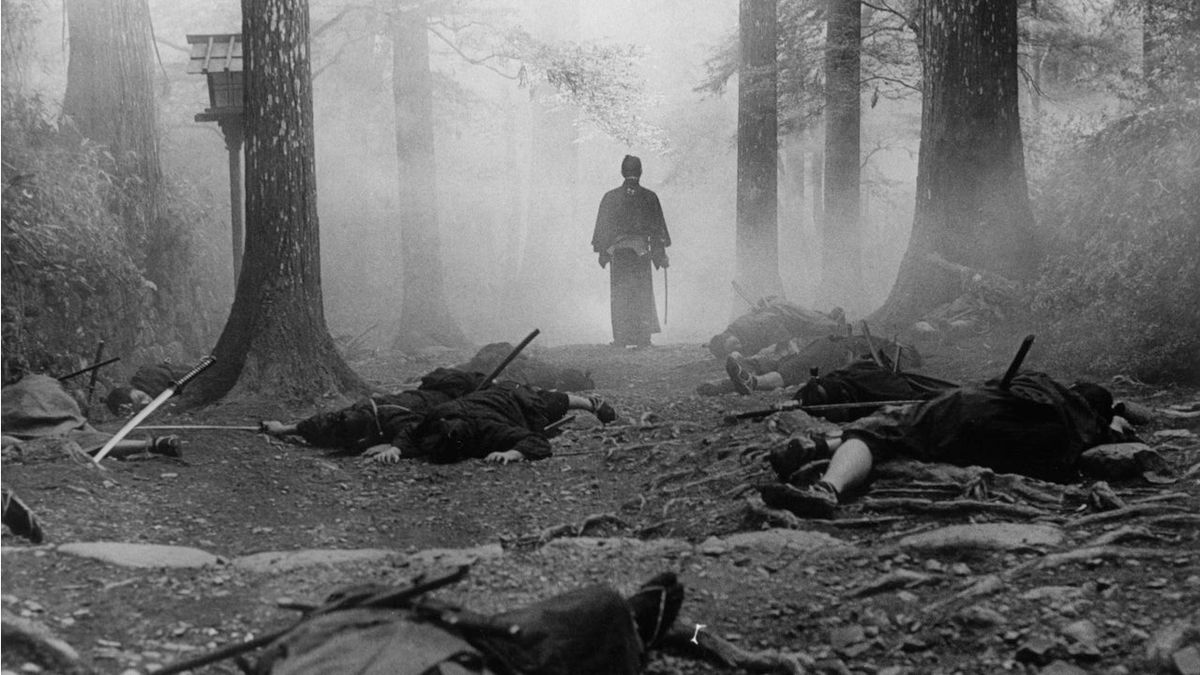
Director: Kihachi Okamoto
Directed by the fascinating Kihachi Okamoto, The Sword of Doom is one of the great showcases for Tatsuya Nakadai, who is no stranger to list of great samurai movies at this point.
A samurai of questionable morals, Ryunosuke Tsukue is compelling but insufferable, when we first meet him. This is just the beginning of a redemption story that isn’t really a redemption story. At least, it frequently goes against the grain of what you expect from one, and it certainly doesn’t give you anything close to hope at any given time.
However, if we can see this bastard of a man find purpose, then that will have to do in the way of hope. Sword of Doom builds to that with heartbreaking, awestriking precision. It also features one of the most violent, breathless conclusions to be found on this list.
Watch if: You like stories about real assholes.
Avoid if: You do like those sorts of stories, but you’re also kind of over it at this point.
11. Le Samouraï (1967)
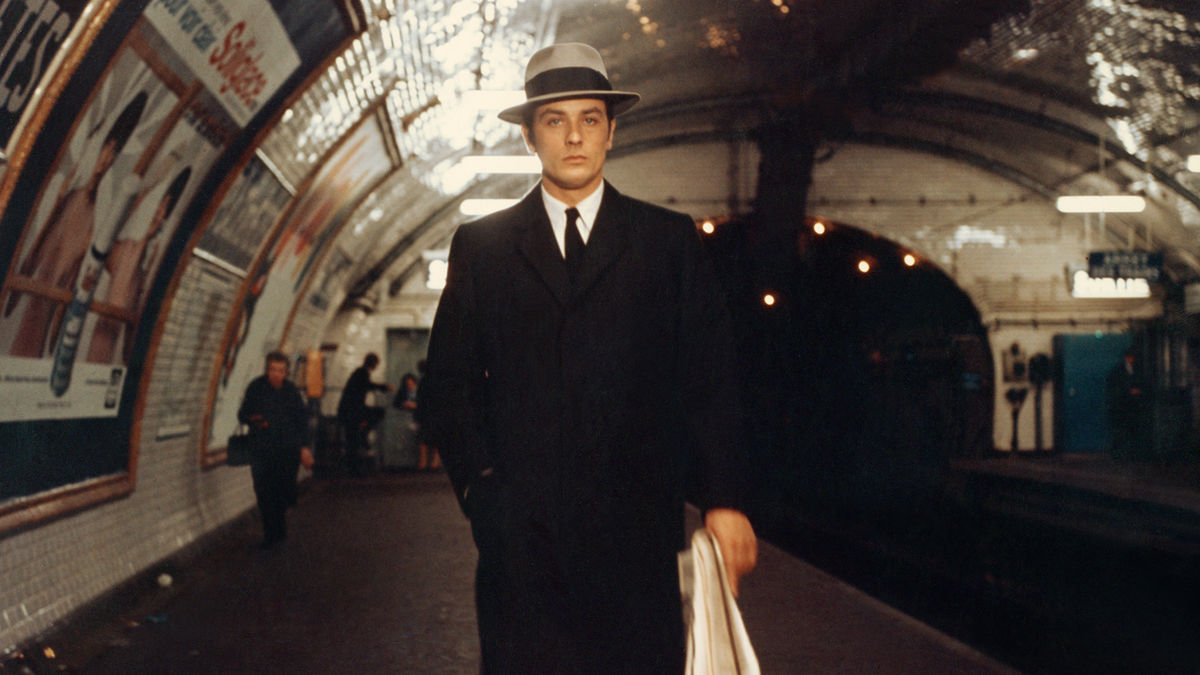
Director: Jean-Pierre Melville
Alain Delon was one of the great detached, cool, and very French leading men of his period. Creating the concept of thematic/spiritual brotherhood between French noir and Japanese samurai films, particularly the dramatic ones with flashes of grim humor, Le Samouraï is a perfect example of how unique Delon was at this particular point in time. He hit many of the marks you’d want from antiheroes in this vein, but he also had his own unsettling calm.
Even when he’s making a dark point, complete with a small, unreadable smile, Delon’s characters were somehow guarded. Passion and pride run against his better judgments, which dictates much of this story. It also draws further comparisons to samurai stories, or at least to the ideals of the men and women in those stories.
Watch if: You want to watch a grim French noir with interesting roots.
Avoid if: You don’t have a high tolerance for fatalism.
12. Samurai Rebellion (1967)
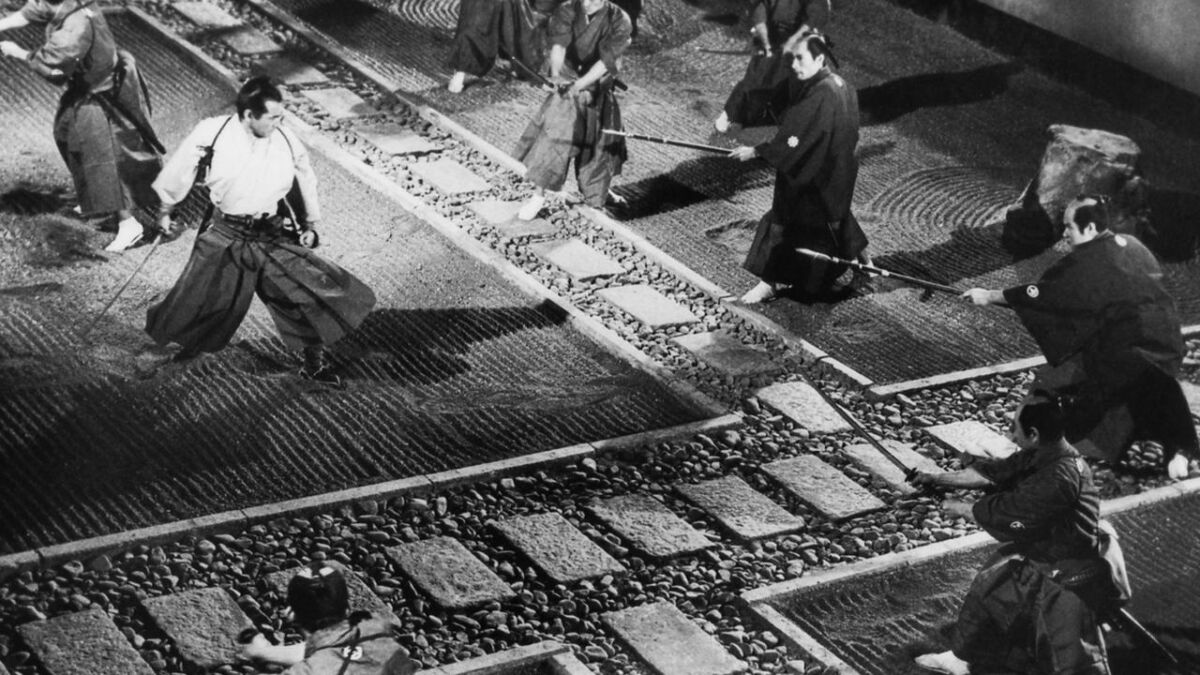
Director: Masaki Kobayashi
An aging samurai is forced to contend with the wrath of his clan when he chooses to fight to ensure his son and daughter-in-law will not be broken apart by the whims of a cruel lord. Samurai Rebellion can be taken as a straightforward story of an old war horse drawing his sword for the most important conflict of his life. The anti-authoritarian tone of the film also seems well-suited to the late 1960s, as well.
Samurai Rebellion is one of the most satisfying action entries on this list. It is also an impressive character study, giving care and attention to not only Isaburo Sasahara, played by the legendary Toshiro Mifune, but also to Sasahara’s son (Go Kato) and new daughter-in-law (Yoko Tsukasa). These characters and others are crafted lovingly, and with attention to not only the larger themes of the story, but also to their effectiveness as people we can engage with.
Fair warning: The end of Samurai Rebellion might leave you feeling devastated. You’ll just have to find out.
Watch if: You want to the iconic Mifune in one of his best roles.
Avoid if: You’re not great with endings that aren’t comprehensively upbeat.
13. Lone Wolf and Cub: Baby Cart at the River Styx (1972)
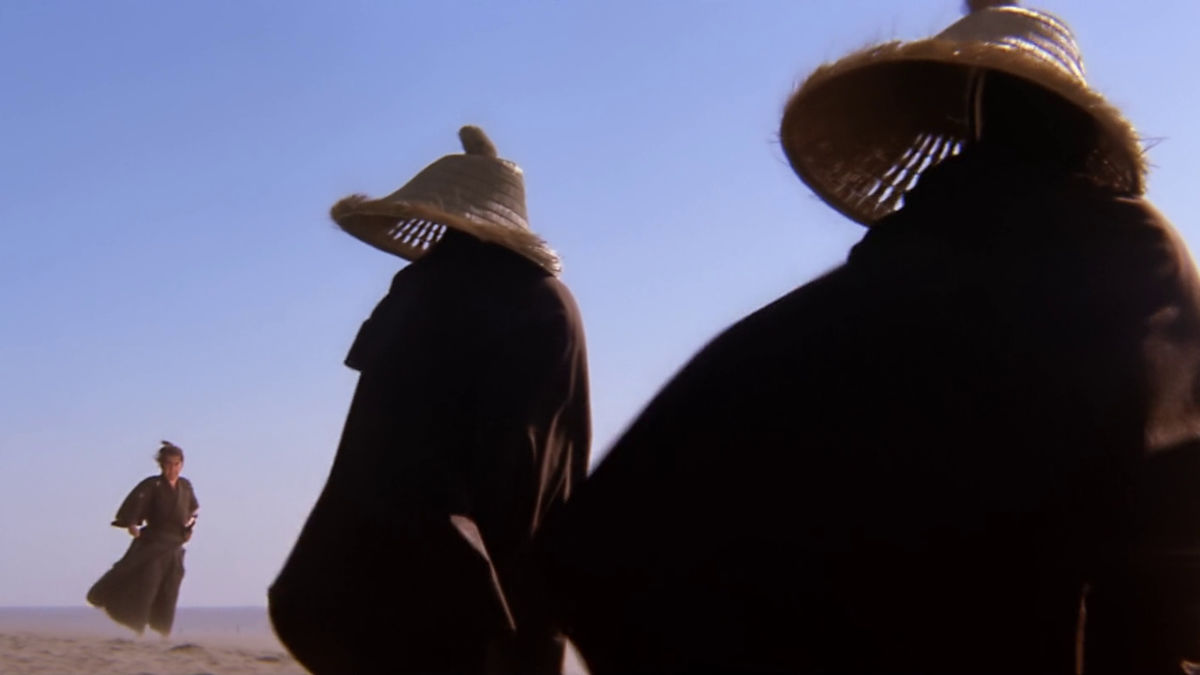
Director: Kenji Misumi
The best in a series of films about the adventures of a disgraced assassin named Ogami Ittō (Tomisaburo Wakayama) and his young son Ogami Daigoro (Akihiro Tomikawa), Baby Cart at the River Styx is the second in the series. Do you need to see the first one to appreciate this? Not really, no. Nonetheless, I suspect you’ll want to see all of them anyway.
Baby Cart at the River Styx firmly sets Ittō and Daigoro on the path that dictates the rest of the series. Not surprisingly, the story of a struggling father who tries to moonlight as a hired killer, with this film giving him the task of taking out a merchant with secrets to share, is pretty dark at times.
Those moments combine beautifully with lighter moments between father and son. The movie finds time for all of this, with character exploration to spare, while also featuring breathless fight sequences. It is a movie that hits just about every note you probably have. You can say these things about each film in the series.
Watch if: You like a good single dad story, but with sword fights.
Avoid if: You can’t stand kids in peril in movies.
14. Hanzo the Razor: Sword of Justice (1972)
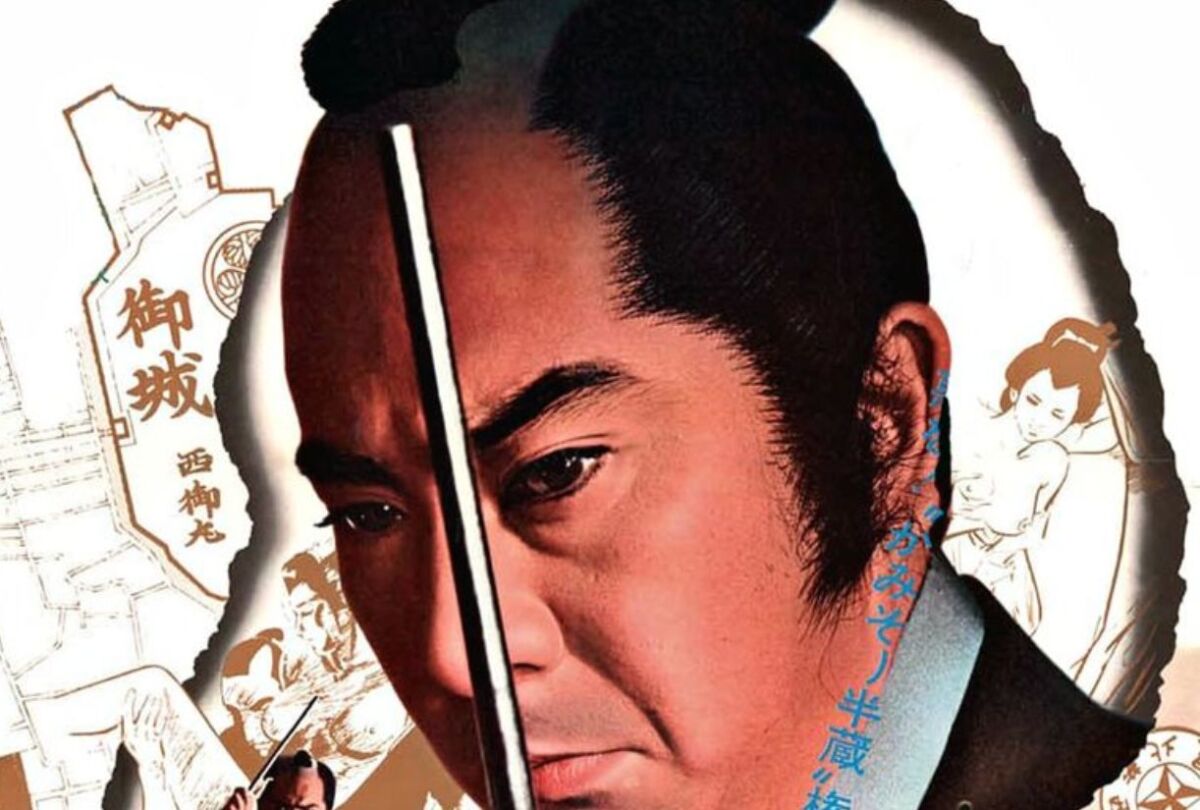
Director: Kenji Misumi
It is kind of unreal that the same creator responsible for the Lone Wolf and Cub manga series also turned out this unusual variant of samurai films, the hardboiled cop drama, and the unspoken rule that the best exploitation films have an unusual idea or subject to exploit.
With an unusual, penis-related means of gaining the information he needs, a police officer in Edo carves out one of the strangest samurai movies ever made.
At the same time, Sword of Justice, the first of three films, is also a brutal, surprisingly effective drama about the conviction of a human force of nature, and what that means for their place in the world. Hanzo would no doubt admire Dirty Harry Callahan.
Sword of Justice is a strange one, but it’s also fast-paced, humorous at times, and intense in its performances and action.
Watch if: You’re in the mood for a different breed of hero in your samurai movie.
Avoid if: “Dirty Harry’s Massive Schlong” doesn’t strike you as an appealing concept.
15. Lady Snowblood (1973)
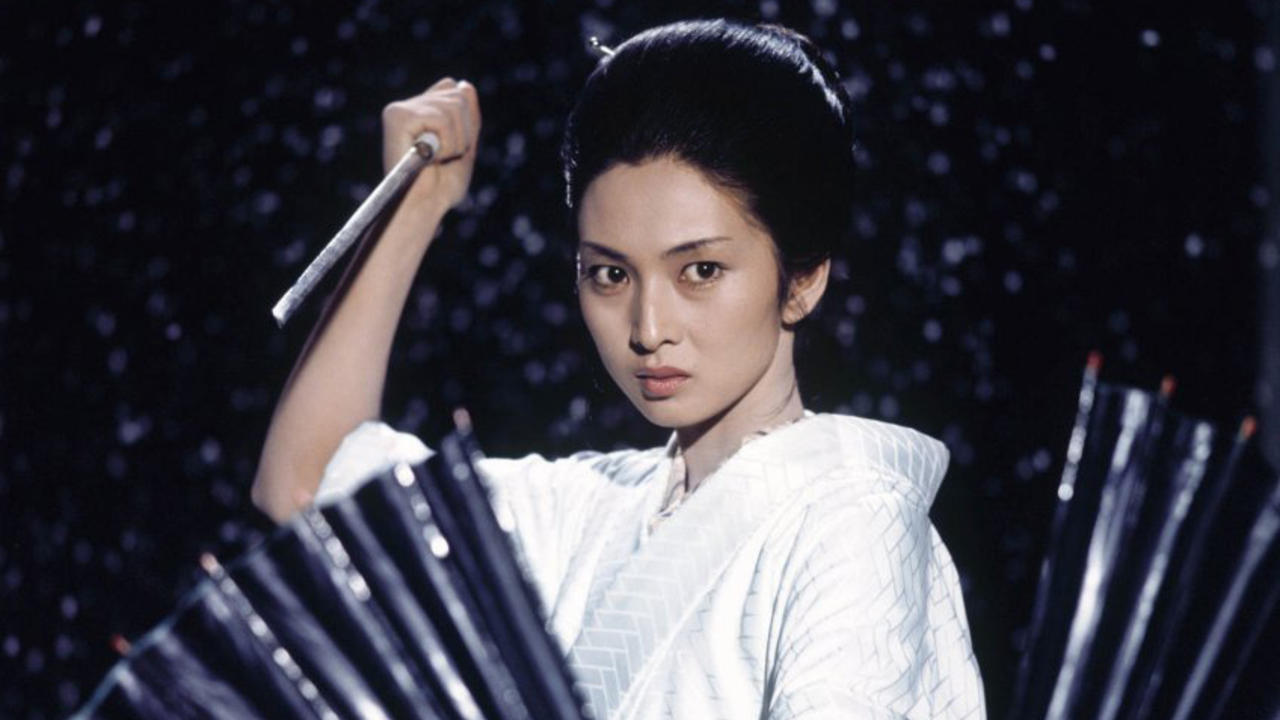
Director: Toshiya Fujita
Tales of bloody vengeance don’t get much more entertaining than Toshiya Fujita’s Lady Snowblood. Meiko Kaji (who continues to work to this day) gives a performance that is as painful to watch, in terms of her journey, as it is exhilarating, as she strikes back at the men who raped and slaughtered her family.
Lady Snowblood doesn’t make revenge appealing. What it does is present it with such singular style, and with such an intense performance by Meiko Kaji, you can’t help but get in her corner. It shouldn’t surprise you that Quentin Tarantino loves this movie, or that it was a big inspiration for Kill Bill.
Lady Snowblood is perhaps the better of the two. If only because there is an authenticity to this movie that western filmmakers can’t recreate, no matter how hard they try. Lady Snowblood also has an interesting elegance to its violence, which is only partially from casting a woman as the protagonist.
Lady Snowblood may not be a traditional samurai, but her fury and dedication ensure a place on this list.
Watch if: You want to see one of the best revenge stories ever made.
Avoid if: If they aren’t actual samurai, then you aren’t interested.
16. Kagemusha (1980)
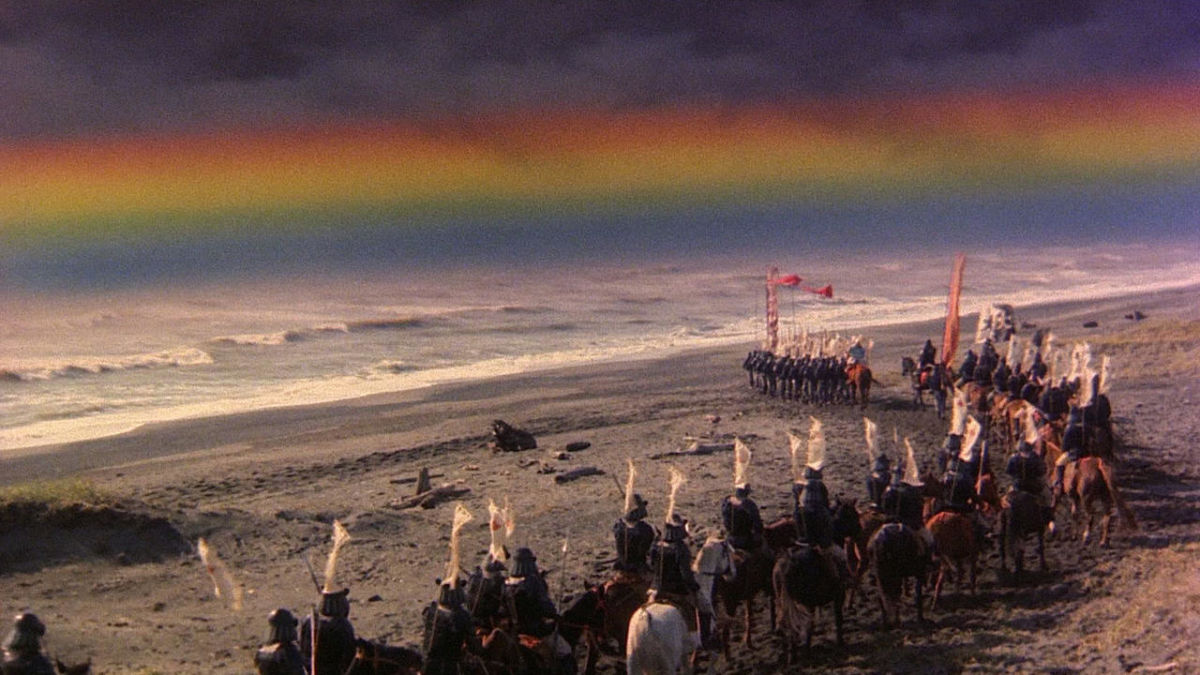
Director: Akira Kurosawa
Kagemusha proved in 1980 that director Akira Kurosawa was far from washed up. Until Ran a few years later, nothing in the Kurosawa canon possessed the scope of Kagemusha.
Featuring the 1575 Battle of Nagashino, the film at its core is about a petty criminal who falls into an opportunity to change the course of history for a number of clans. The film is lush, intoxicating in its surroundings. There are also so many characters and moments to take in throughout, you probably won’t get everything this movie has to offer the first time around. It is a grand story set upon a stage that only Kurosawa could have created.
At the same time, the achievements of Kagemusha also rest on the remarkable actors, writers, technicians, and others Kurosawa surrounded himself with throughout his career. Kagemusha would be an incredible culmination of that brilliance, and of the other facets to one of the most crucial figures of samurai cinema.
At least, until Kurosawa returned in 1985 with Ran.
Watch if: You like epic battles, spectacular performances, and gorgeous visuals.
Avoid if: You dislike those things.
17. Shogun’s Shadow (1989)
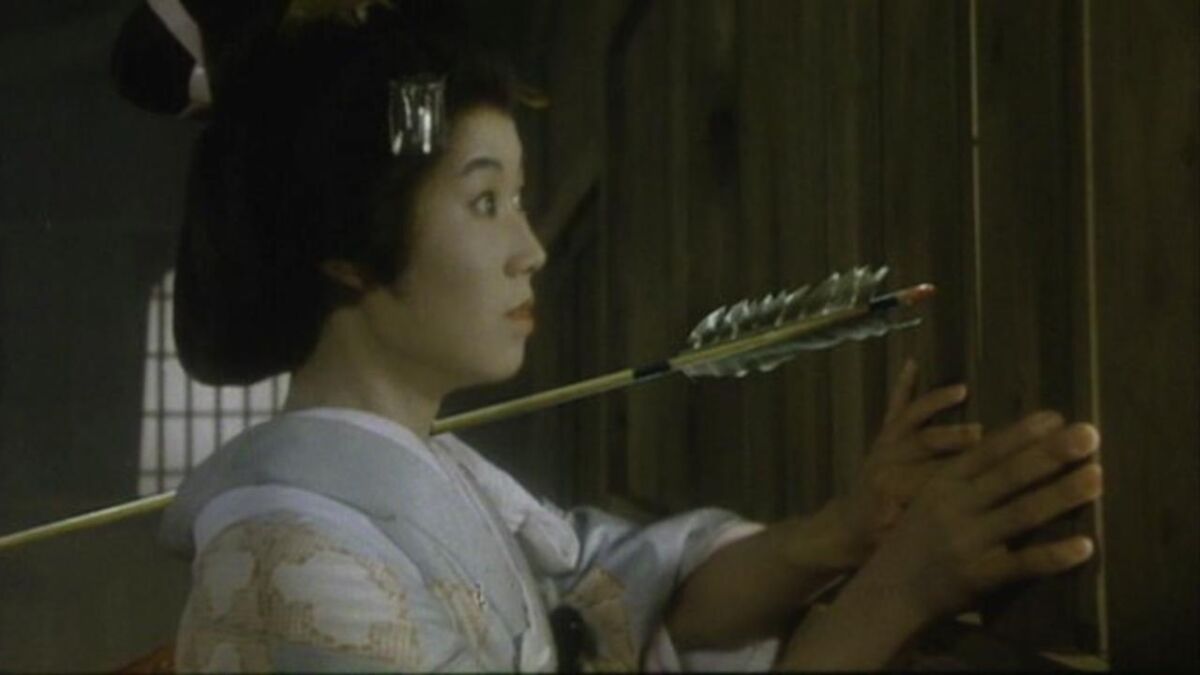
Director: Yasuo Furuhata
If you’re looking for something with a distinct emphasis on brutal chaos and excellent, sometimes messy choreography, and a story that efficiently services those things, Shogun’s Shadow is perfect. It isn’t the deepest movie on this list by a long shot. The film is very much a product of late 80s action with at least some budget to spare — mileage varies for movies like these.
The story when boiled to its essentials is a samurai protecting a young charge from the machinations of the politically ambitious. While you may see the deception and moments of intrigue coming a mile away, it’s almost impossible to hate a movie with great actors like Ken Ogata and Sonny Chiba getting into bloody fights every 15 or so minutes.
Again, the mileage here may vary, but Shogun’s Shadow can be an entertaining throwback, and one of the most entertaining samurai films of the decade.
Watch if: You want some 80s decadence in your samurai violence.
Avoid if: You have a low tolerance for everything I just described.
18. Ninja Scroll (1993)
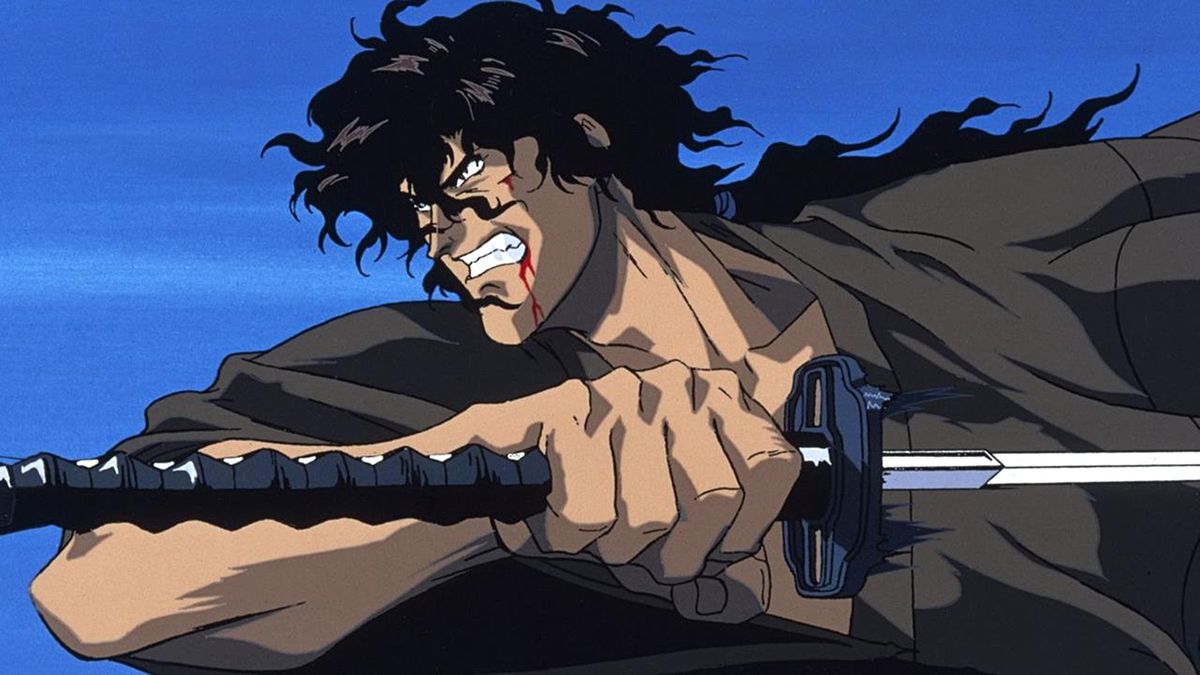
Director: Yoshiaki Kawajiri
While samurais have been part of anime for as long as the medium has existed, there are few feature film examples that can stand alongside the titles covered here so far. Ninja Scroll, released nearly 30 years ago and part of an increasing number of anime titles that were finding some degree of mainstream success, stands firmly as one such example.
This is another title with a degree of violence that may be a bit much for some. However, if you like your samurai stories to have memorable characters, striking animation (especially for its time), and buckets of violence, you’re going to be happy with everything Ninja Scroll brings.
Yes, there is a story. A simple one, coming down to a mercenary swordsman who squares off against a seemingly insurmountable wave of supernatural ninjas. If you’re samurai tastes run a little sterner, or involve a need for high drama, this is not the movie for you. Everything exists primarily to set up the action set pieces, which are breathtaking for their visual punch and exceptional tension.
That visual punch has not diminished with age.
Watch if: You want to see one of the most famous anime feature films of all time.
Avoid if: You’re not a big fan of historical fantasies.
19. Ghost Dog: The Way of the Samurai
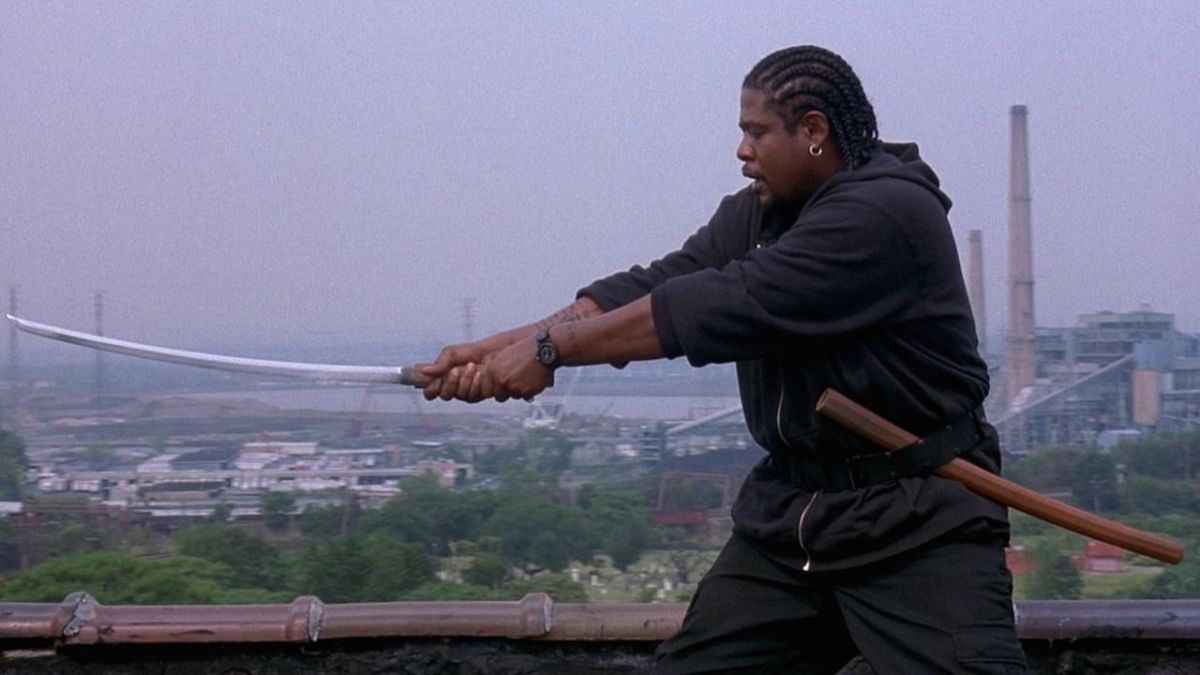
Director: Jim Jarmusch
Borrowing elements of Le Samouraï, while also aspiring to combine such ideals with an entirely new type of story and characters, Jim Jarmusch’s Ghost Dog was the director’s boldest deconstruction of a genre up to that point.
Like many of his best films, Ghost Dog isn’t just an examination of themes and people within very specific types of stories. It is a character study that aspires to take its time when necessary, speed things up where it counts, and trust the actors implicitly.
Such trust is what gives us Forrest Whitaker in one of the strongest performances of his long career. The beliefs and overall attitude of his character, who is never called anything but Ghost Dog, creates a living anachronism that thrives and infuriates in the modern (at the time of the film) world.
To put it another way, Ghost Dog is vibrant, even when he’s moving gently. That comes from Whitaker’s deft handling of the character, in a film that jumps across themes and tones with occasionally-disconcerting ease.
Watch if: You want to see a singular concept of humanity.
Avoid if: You’re not into conceptual samurais.
20. The Twilight Samurai (2002)
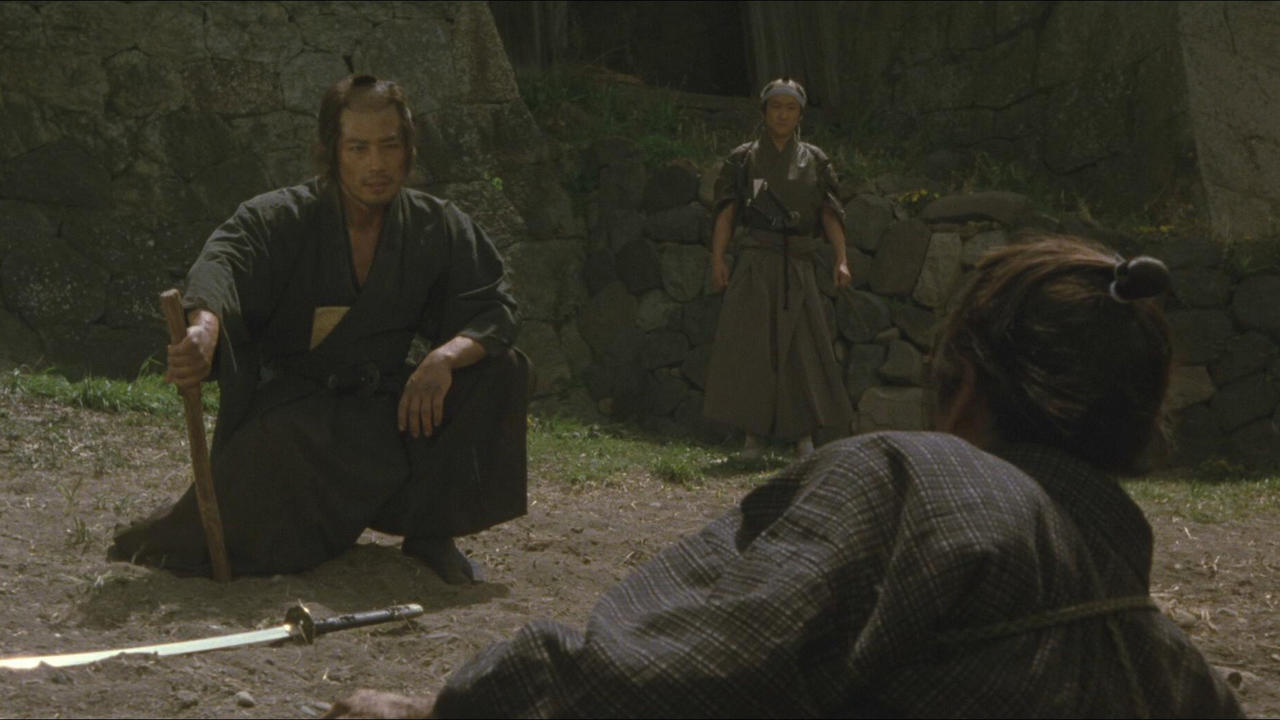
Director: Yôji Yamada
The Twilight Samurai may well be the saddest movie on this list. It will probably be among the most depressing movies you’ve seen recently, if you’re new to it.
The story’s samurai protagonist (Hiroyuki Sanada) isn’t even a warrior when we meet him, but an accountant. He is willing to accept a quiet, unremarkable life, caring for his children. That changes for the worse, but occasionally, briefly for the better, when he meets a childhood love, played by Rie Miyazawa.
Samurai films generally have showdowns and fights of different types. The Twilight Samurai is no different. At the same time, it is one of the more character-driven entries on this list. Samurai stories often use the space to talk about subjects like traditional, loyalty, and how human impulses often run against those concepts.
It is a somber story of loss, and the fact that recovering from loss is not promised to us. Sometimes, the universe, or poor decision-making, will conspire to make a bad thing even worse.
Watch if: You want to see an intense human drama.
Avoid if: You prefer the redemptive power of love realized.
21. The Blind Swordsman: Zatoichi (2003)
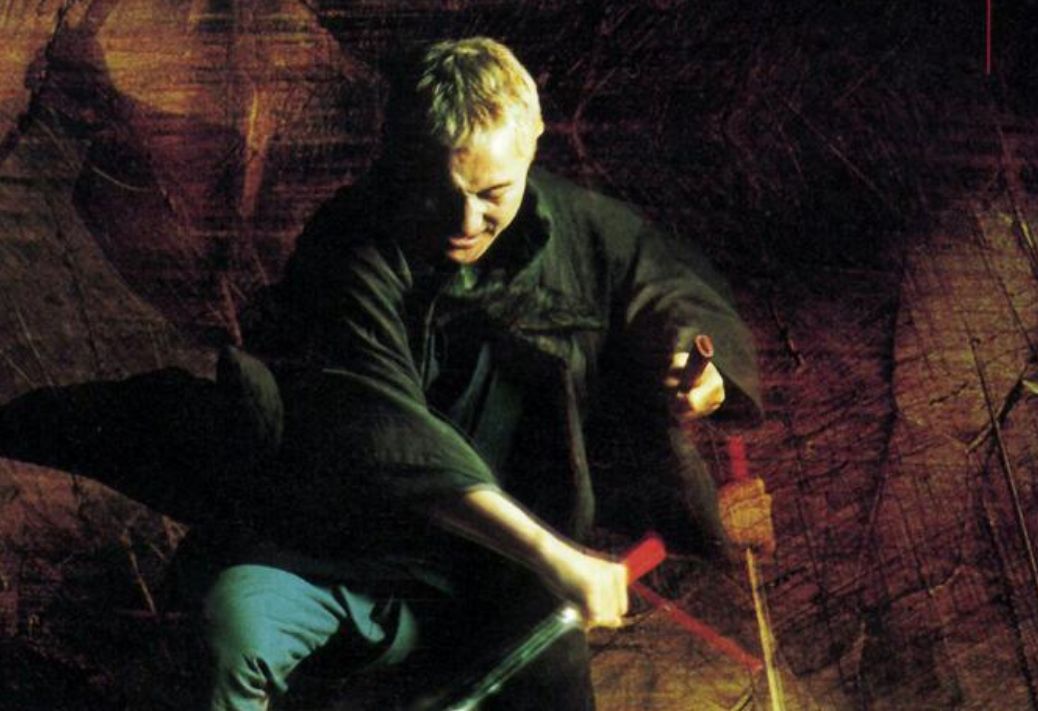
Director: Takeshi Kitano
Writing, directing, co-editing, and starring, Takeshi Kitano reimagined the iconic Zatoichi with minimal changes, but his own unique energy as both a performer and writer.
If anything, the only significant difference between this, and the famous Toho series which ran for several decades, is the fact that this film feels a little glossier. I’ll leave it up to you to decide if that’s good or bad.
The Blind Swordsman works as pure entertainment. There is nothing groundbreaking here, but there is a supremely entertaining reminder that good samurai films begin with the dawn of the medium itself, and run all the way up to the present. Every decade is represented.
Watch if: You want to see a master director and actor at the top of his entertainment game.
Avoid if: You’re honor-bound to the original Zatoichi series.
22. 13 Assassins (2010)
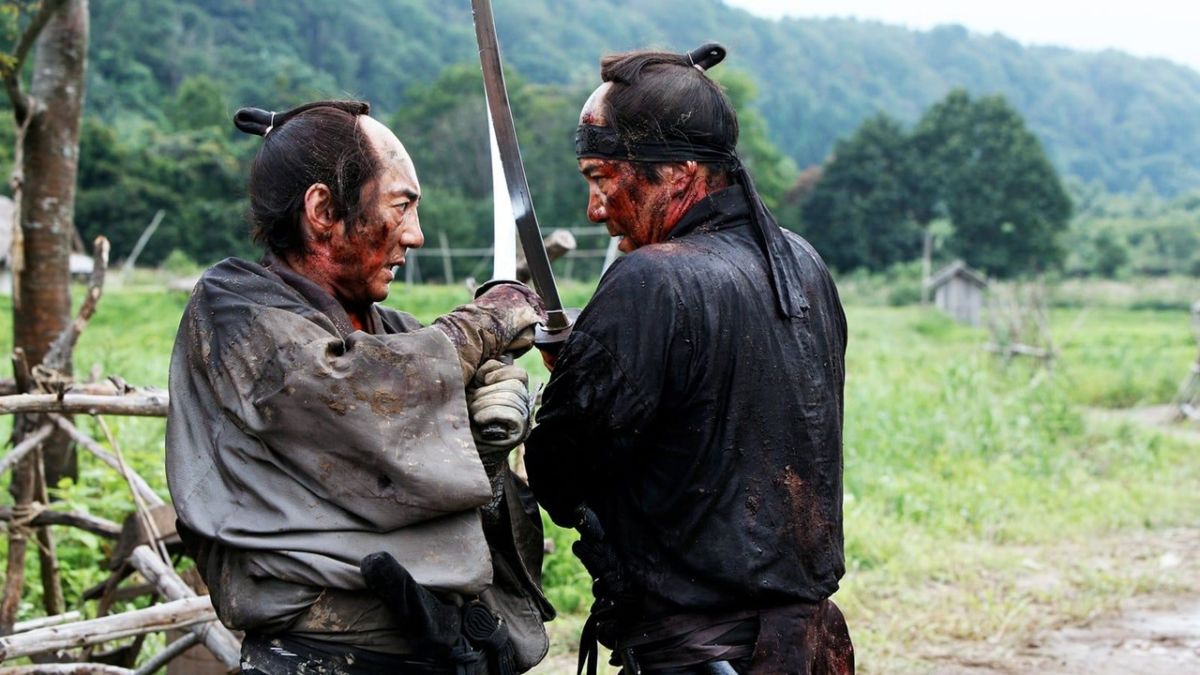
Director: Takashi Miike
Due to an almost-supernatural versatility as a filmmaker, pretty much any film list that’s Japan-centric is going to mention Takashi Miike. This remake of a 1963 film is one of his best. If you’re just starting to learn about this guy, this story of a group of assassins taking a bold, brutal strike against the vicious leader of the Akashi Clan, is as good a place to start as anywhere.
13 Assassins has just about everything you could want from a great movie. It features a large, vibrant, varied cast. It features the kind of visual ferocity that only Miike can evoke. 13 Assassins is also highlighted with a straightforward story that manages to make time for everyone in the cast to shine. There are some impressive, terrifying characters to meet.
Just don’t get too attached to anyone. That’s rarely a good idea in something like this.
Watch if: You want to see a movie that makes Game of Thrones look like Airwolf.
Avoid if: You’re not big on blood.
23. Hara-Kiri: Death of a Samurai (2011)
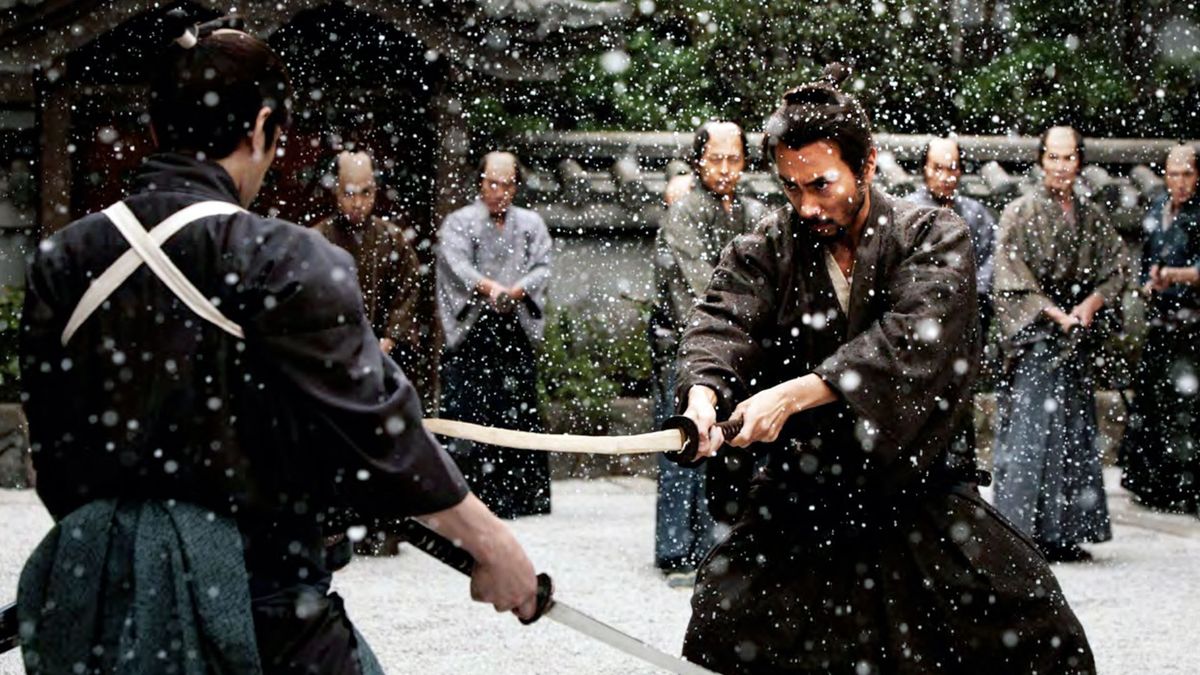
Director: Takashi Miike
When the director of films like Ichi the Killer and Audition makes a samurai film, you know it’s going to be something that at least stays with you for a good while. Then again, after 100+ films across every conceivable genre and type of film, it seems improbable that Takashi Miike couldn’t direct one of the best samurai movies or two.
A fascinating story of vengeance, the path of the soul, and the possibility of redemption, Hara-Kiri: Death of a Samurai can be alarming for anyone who only knows Miike as the director of utter brutality, both physically and psychologically. Hara-Kiri still has that component, but the proceedings are done with an eye towards what could only be called restraint.
Simply put, when you expect this film to go in one direction, it very firmly drags you in another. The emphasis is one character development within the larger subject of revenge. Between the screenplay by Yasuhiko Takiguchi and Kikumi Yamagishi, as well as performances by Ichikawa Ebizō XI and Eita Nagayama, we have everything needed for a truly engaging samurai drama.
For action fans or gore fans, you won’t be completely letdown, but this may not be your kind of movie.
Watch if: You want to see a master director at the helm of a story with all the essential components.
Avoid if: You don’t care for the slow-burn drama.
24. Unforgiven (2013)
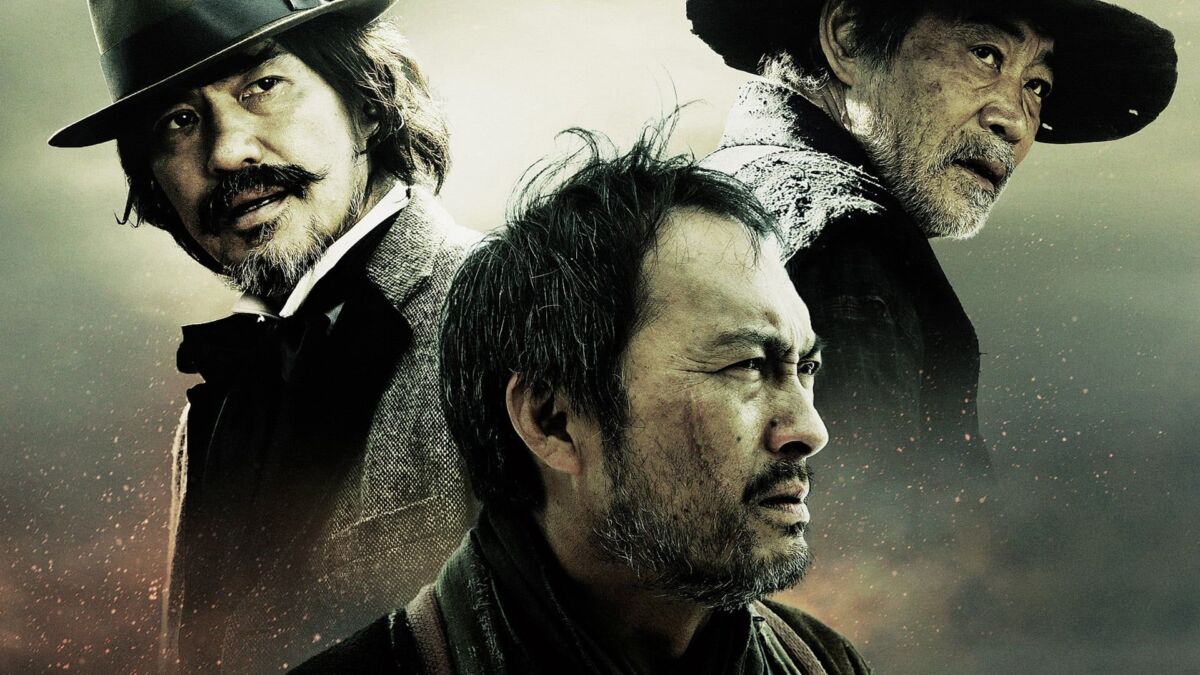
Director: Lee Sang-il
The respect and admiration shared by westerns and samurai movies could make for a list unto itself. Directed by Japanese-Korean filmmaker Lee Sang-il with a stunning balance found between new elements and ideas and essential components to Clint Eastwood’s 1992 gunslinger epic, Unforgiven stands on its own for a number of reasons.
The most significant of those reasons concerns its cast. Led by Ken Watanabe in the Eastwood role of a retired criminal and aging, living myth, Unforgiven uses the theme of transition, particularly the role of someone like a samurai in the late 19th century, while also proving that you can tell one of these stories in a variety of settings and tones.
This Japanese remake of an American classic is a good reminder that reimaginings are not an inherently flawed idea.
Watch if: You want to see a phenomenal actor like Watanabe in an exceptional remake
Avoid if: Your “no remakes” rule is ridiculously iron-clad.
25. Blade of the Immortal (2017)
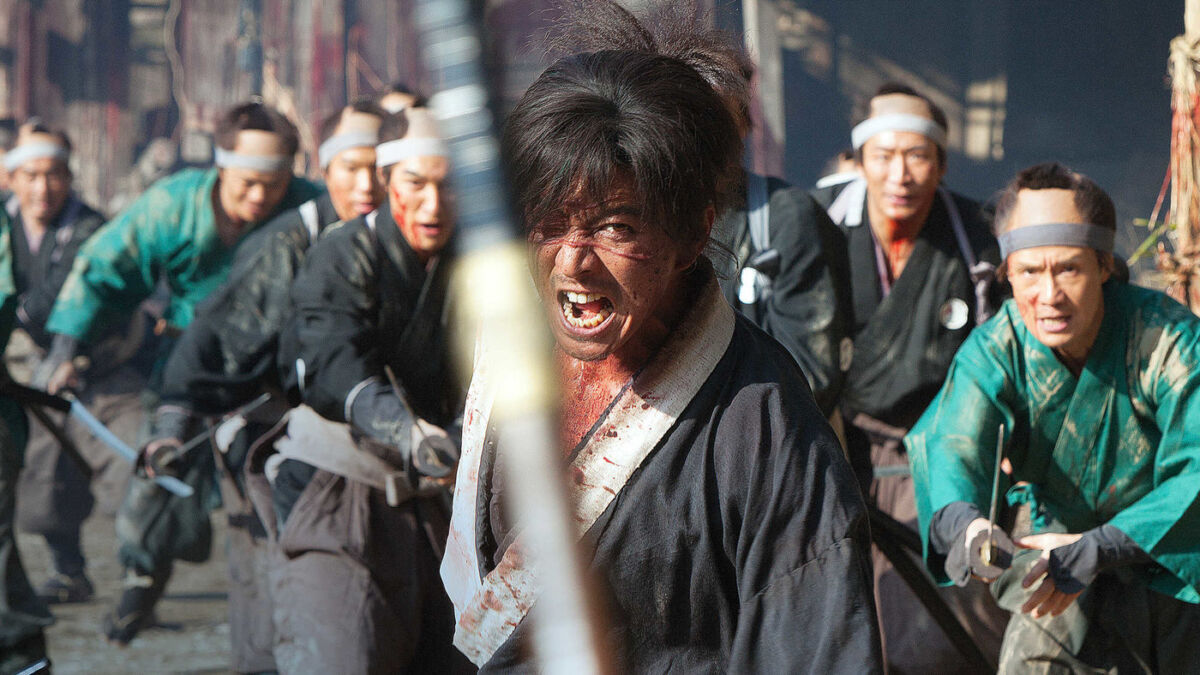
Director: Takashi Miike
As far as director Takashi Miike is concerned, the contrast between Hara-Kiri: Death of a Samurai and his 2017 film Blade of the Immortal is impressive. If you want one of Japan’s most energetic and visually ambitious directors in front of a movie that stresses bloody action and charismatic characters, Blade of the Immortal will be formidable entertainment.
A samurai cursed with immortality throws in his stock with a young woman who wants revenge for the deaths of her parents. Blade of the Immortal isn’t shallow by any means, but it doesn’t spend any meaningful length of time on pondering bigger questions. This is a story where the long bloody trail of vengeance leads to a spectacular conclusion.
Blade of the Immortal also benefits from the massive and varied talents of its cast, including Takuya Kimura as the immortal samurai, Hana Sugisaki as his partner in retribution, and Sota Fukushi as one of their many roadblocks. The film is a high note for everyone involved.
Watch if: You like relentless action and fast cuts of one-on-one showdowns.
Avoid if: Live-action adaptations of Anime/Manga isn’t something you generally enjoy.
READ NEXT: The Best Gangster Movies of All-Time
Some of the coverage you find on Cultured Vultures contains affiliate links, which provide us with small commissions based on purchases made from visiting our site.
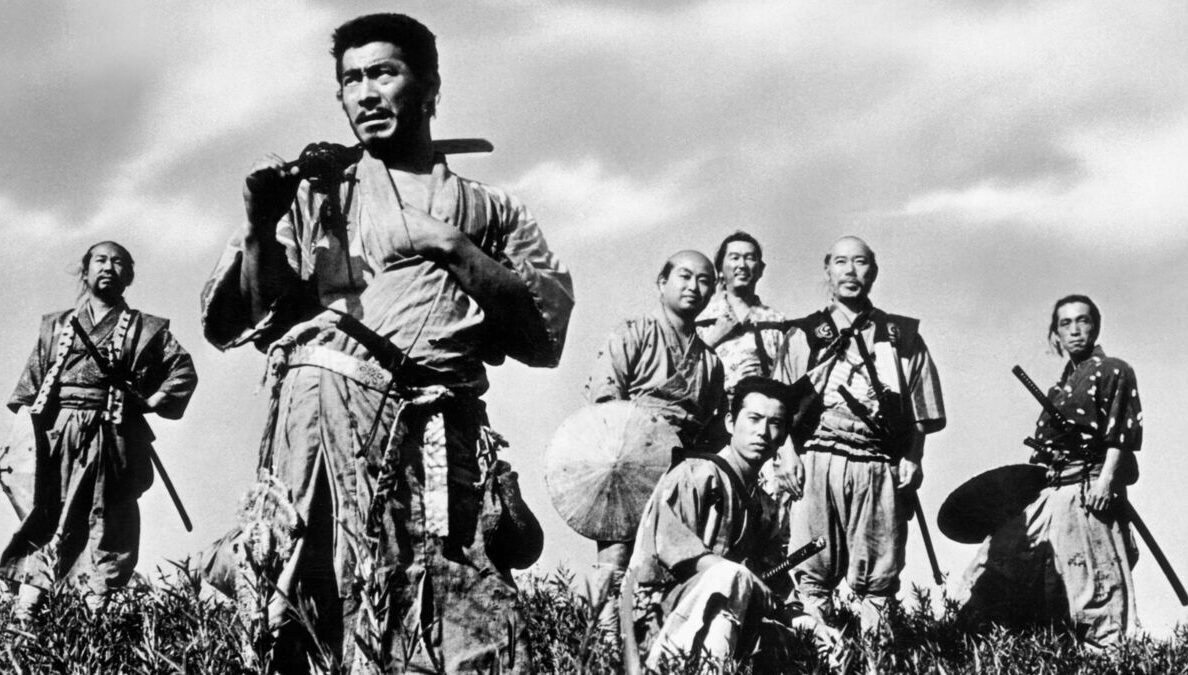
![Seven Samurai (Blu-ray Edition) [1954]](https://m.media-amazon.com/images/I/51PnueSylrL._SL75_.jpg)
![The Samurai Trilogy (The Criterion Collection) [Blu-ray]](https://m.media-amazon.com/images/I/51cJsRDTC8L._SL75_.jpg)
![Throne of Blood [Blu-ray]](https://m.media-amazon.com/images/I/41CU+JzsJAS._SL75_.jpg)
![Yojimbo (The Criterion Collection) [Blu-ray]](https://m.media-amazon.com/images/I/51cHTuEnWSL._SL75_.jpg)
![Harakiri (The Criterion Collection) [Blu-ray]](https://m.media-amazon.com/images/I/41I5V2O+zXL._SL75_.jpg)
![Sanjuro (The Criterion Collection) [Blu-ray]](https://m.media-amazon.com/images/I/51E8eE-zV+L._SL75_.jpg)

![Three Outlaw Samurai (The Criterion Collection) [Blu-ray]](https://m.media-amazon.com/images/I/51SXktXj43L._SL75_.jpg)
![The Sword of Doom [Blu-ray]](https://m.media-amazon.com/images/I/51VCKqV8wLL._SL75_.jpg)
![Le samouraï (The Criterion Collection) [Blu-ray]](https://m.media-amazon.com/images/I/414lZQtQ5dL._SL75_.jpg)
![Samurai Rebellion (The Criterion Collection) [DVD]](https://m.media-amazon.com/images/I/41Ow9vlJn7L._SL75_.jpg)
![Lone Wolf and Cub (The Criterion Collection) [Blu-ray]](https://m.media-amazon.com/images/I/61g5E9lMLML._SL75_.jpg)

![The Complete Lady Snowblood (The Criterion Collection) [Blu-ray]](https://m.media-amazon.com/images/I/51rgvKhTb+L._SL75_.jpg)
![Kagemusha (The Criterion Collection) [Blu-ray] [Blu-ray]](https://m.media-amazon.com/images/I/41McK0mHXWL._SL75_.jpg)

![Ninja Scroll [Blu-ray]](https://m.media-amazon.com/images/I/51j8FwRrnFL._SL75_.jpg)
![Ghost Dog: The Way of the Samurai (The Criterion Collection) [Blu-ray]](https://m.media-amazon.com/images/I/41wHF-S5XAL._SL75_.jpg)
![The Twilight Samurai [Blu-ray]](https://m.media-amazon.com/images/I/519QOmy2rAL._SL75_.jpg)
![The Blind Swordsman Zatoichi [Blu-ray]](https://m.media-amazon.com/images/I/51F9GHecP5L._SL75_.jpg)
![13 Assassins [Blu-ray]](https://m.media-amazon.com/images/I/51NzoxVyO4L._SL75_.jpg)
![Hara-Kiri: Death of a Samurai [Blu-ray]](https://m.media-amazon.com/images/I/51qcEah4orL._SL75_.jpg)

